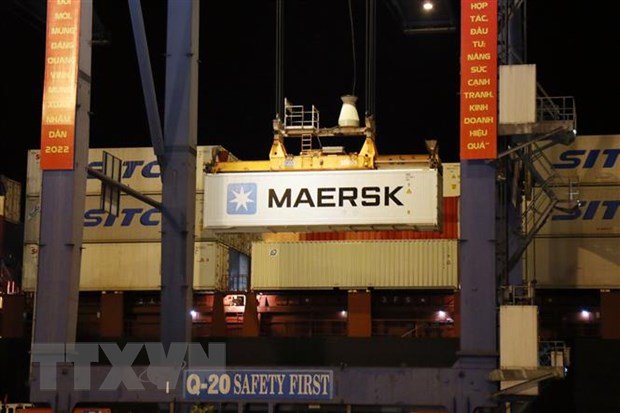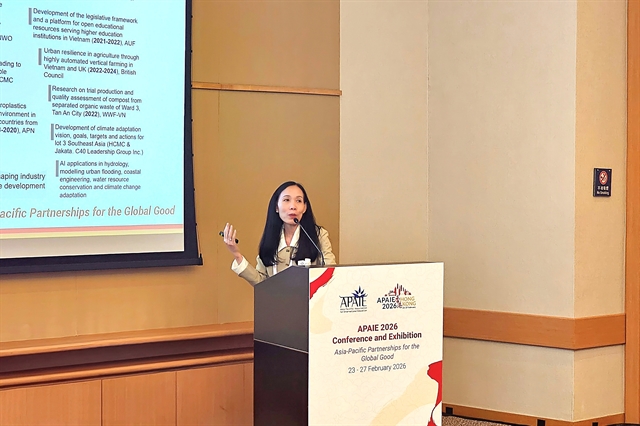 Economy
Economy


|
| Cát Lái Port in HCM City. The city will start collecting fees for using infrastructure and public services at ports on April 1. – VNA Photo Tiến Lực |
HCM CITY — HCM City is set to launch an automatic fee collecting system for the use of infrastructure and public services at ports on April 1 to raise funds to develop roads around ports.
Nguyễn Ngọc Tuấn, director of the HCM City Inland Waterway Port Authority, said a trial run of the fee collection system had been made since February 16, and it had worked smoothly.
The online system would not interfere with custom clearance, he assured.
For goods imported for re-export or deposited in bonded warehouses and for transit and transhipment goods the fee is VNĐ50,000 (US$2.19) per tonne for liquid and bulk cargo, VNĐ2.2 million ($96.5) for a 20-foot container and VNĐ4.4 million ($193) for a 40ft container.
For goods declared outside the city, the rates are VNĐ30,000, VNĐ500,000 and VNĐ1 million.
For imports and exports declared in the city, the rates are VNĐ15,000, around VNĐ250,000 and VNĐ500,000.
Goods meant for national defence, disaster relief and some others are exempt from the fees.
The city expects to collect over VNĐ3 trillion a year.
Bùi Hòa An, deputy director of the Department of Transport, said the city planned to invest around VNĐ16 trillion by 2025 in port infrastructure and improving connectivity.
“Since HCM City has funding limitations, having an additional source of funding to build roads to enhance port connectivity is crucial. With the fees collected, investment in port connectivity projects can be sped up.”
Fourteen infrastructure projects will be carried out in the near future, including new roads and upgrades to existing ones near ports.
The city will also invest in improving waterways and inland ports.
The original plan was to start collecting the fees last July, but the pandemic forced a delay.
Earlier this month industry trade groups called on the city to put off the fee collection plans until the end of the year saying businesses are dealing with severe problems like rising fuel prices and broken global supply chains. — VNS




